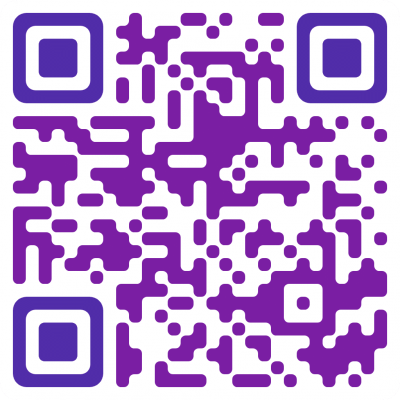An Overview of How To Be Well
Who Finds Healing in How To Be Well
Frank Lipman’s How To Be Well is a treasure trove for those feeling lost in the maze of modern health advice. It speaks to anyone yearning for a return to vitality, from the chronically fatigued to the wellness newbie. It’s for the everyday person who senses that their well-being could be better, and is searching for a clear, manageable path to follow.
Common Health Struggles Addressed by Frank Lipman
In a world where stress, poor diet, and inactivity run rampant, How To Be Well zeroes in on the silent epidemics of our time. Think chronic fatigue, obesity, diabetes, and heart disease.
These are the monsters under the bed, the ones that creep up silently and take hold. Lipman understands that these are not just conditions, but life-altering challenges that people are desperate to overcome.
Health Goals How To Be Well Helps You Achieve
Imagine a life where energy overflows, sleep is restorative, and every day is infused with vitality. This is the vision that How To Be Well paints for its readers. It’s not just about dodging illness; it’s about reaching a peak state of health where every cell in your body sings with life.
Frank Lipman’s Promise of a Healthier Tomorrow
How To Be Well is more than a book; it’s a companion on the journey to wellness. Lipman offers a promise that’s grounded in practicality and steeped in wisdom.
It’s the promise of a balanced body and mind, achieved through simple, sustainable changes that anyone can make.
Central Themes of How To Be Well
The book’s heartbeat is its holistic approach to health. It’s about connecting the dots between diet, exercise, sleep, and mindfulness.
How To Be Well teaches that health is not found in a pill or a single superfood, but in the symphony of small, daily choices.
Key Takeaways for Achieving Health Goals
The most powerful message that Lipman imparts is the transformative power of self-care. He emphasizes the importance of listening to your body, nourishing it with whole foods, moving it daily, and giving it the rest it deserves.
These are the pillars upon which a life of wellness is built.
Top 15 Habits in How To Be Well
Embarking on a journey to reclaim your health can be both empowering and daunting. The key lies in adopting habits that not only combat common health issues but also enhance overall well-being.
By integrating these practices into your daily routine, you can pave the way to a life brimming with energy and free from the burdens of modern ailments.
- Eat Whole Foods
Prioritizing a diet rich in whole, unprocessed foods can drastically reduce inflammation, a common culprit behind chronic diseases like obesity and diabetes. Whole foods provide essential nutrients that support bodily functions and promote healing. - Regular Movement
Incorporating daily exercise, whether it’s a brisk walk or a yoga session, improves cardiovascular health, boosts mood, and helps manage weight. Regular movement is key to maintaining a healthy metabolism and preventing lifestyle-related diseases. - Adequate Sleep
Ensuring seven to nine hours of quality sleep each night can strengthen the immune system, improve mental clarity, and reduce the risk of chronic conditions such as heart disease and obesity. - Mindfulness and Meditation
These practices can lower stress levels, which is vital in preventing stress-related conditions like hypertension. Mindfulness enhances emotional well-being and has been shown to improve outcomes in chronic illness management. - Hydration
Drinking enough water is essential for kidney function, digestion, and skin health. Proper hydration also aids in weight management and can improve cognitive function. - Detoxification
Engaging in regular detoxifying activities, such as sauna use or consuming detoxifying foods, can help the body eliminate toxins that contribute to fatigue and a sluggish metabolism. - Supplement Wisely
Using supplements to fill nutritional gaps can support overall health, particularly for nutrients that are difficult to obtain through diet alone, aiding in the prevention of nutritional deficiencies and related health issues. - Reduce Sugar Intake
Cutting back on sugar can lead to better blood sugar control, reduced inflammation, and a lower risk of diabetes and obesity. - Healthy Fats
Incorporating healthy fats, like those from avocados and nuts, supports brain health and can help prevent heart disease by improving cholesterol levels. - Probiotics and Gut Health
Maintaining a healthy gut flora through probiotics can improve digestion, boost immunity, and has been linked to better mental health. - Limit Processed Foods
Reducing intake of processed foods can decrease exposure to harmful additives and high levels of salt and sugar, which are often linked to chronic health problems. - Connect with Community
Building strong social ties can improve mental health, reduce stress, and has been associated with a longer lifespan. - Time in Nature
Spending time outdoors can improve mood, increase vitamin D levels, and has been shown to lower blood pressure and stress hormone levels. - Practice Gratitude
Focusing on gratitude can enhance psychological health, reduce depression, and may lead to healthier lifestyle choices. - Regular Check-ups
Staying on top of health through regular medical check-ups can lead to early detection of issues and a better chance of successful treatment.
Run a Nutrition Challenge on MasterHealth
How To Be Well Supplement List
- Multivitamins
A high-quality multivitamin acts as a nutritional safety net, ensuring that individuals receive an array of essential vitamins and minerals that may be lacking in their diet. Lipman suggests that due to soil depletion and the modern lifestyle, even a well-rounded diet might not provide all necessary nutrients. - Omega-3 Fatty Acids
Omega-3 supplements, often derived from fish oil, support cardiovascular health by reducing triglyceride levels and may also have anti-inflammatory effects beneficial for conditions such as arthritis. They are also crucial for brain health and cognitive function. - Probiotics
These supplements help maintain a healthy gut microbiome, which is essential for digestion, immune function, and even mental health, as there is a significant connection between the gut and the brain known as the gut-brain axis. - Vitamin D
With deficiency widespread due to limited sun exposure, supplementation can support bone health by aiding calcium absorption, reduce the risk of certain cancers, and play a role in immune system regulation. - Magnesium
Magnesium is involved in over 300 biochemical reactions in the body and is important for heart rhythm, muscle function, and the nervous system. It can also help with sleep quality and stress management. - Coenzyme Q10 (CoQ10)
This antioxidant is essential for energy production in cells and may benefit heart health. It’s particularly important for those taking statins, as these cholesterol-lowering drugs can reduce CoQ10 levels in the body. - Vitamin B12
Especially important for vegetarians and older adults, B12 supplementation can prevent anemia, support bone health, and improve mood and brain function by playing a role in serotonin production. - Curcumin
The active component in turmeric, curcumin has potent anti-inflammatory properties and can be beneficial in managing conditions like arthritis and may also have neuroprotective effects. - Green Tea Extract (L-theanine)
Rich in antioxidants, specifically catechins, green tea extract can aid in weight management, improve brain function, and may reduce the risk of heart disease. - Adaptogens
Herbs like Rhodiola and Ashwagandha help the body manage stress and can improve energy levels, sleep, and mental clarity.
Please note, it’s important for readers to consult with healthcare professionals before making changes to their supplement regimen, especially if they have chronic health conditions, or are pregnant or breastfeeding.
10 Products Frank Lipman Recommends in How To Be Well
As we delve deeper into the holistic health approach advocated by Frank Lipman in How To Be Well, we find that beyond habits and supplements, there are specific products that can further enhance one’s journey to optimal health.
These products, often rooted in scientific research, are recommended for their ability to support various aspects of wellness, from improving sleep quality to reducing exposure to environmental toxins.
- HEPA Air Purifiers
These devices are designed to filter out airborne particles, including allergens, smoke, and pollutants. Lipman suggests that using a HEPA air purifier can improve respiratory health and reduce the risk of airborne diseases by providing a cleaner indoor air environment. - Blue Light Blocking Glasses
With the increasing amount of time spent in front of screens, these glasses can help reduce eye strain and prevent disruption of the body’s natural sleep-wake cycle by filtering out blue light, which has been shown to interfere with melatonin production. - Standing Desks
To combat the negative health effects of prolonged sitting, such as increased risk of cardiovascular disease and obesity, standing desks encourage movement and can help improve posture and reduce back pain. - Non-Toxic Cleaning Products
Lipman emphasizes the importance of reducing exposure to harsh chemicals found in many conventional cleaning products, which can contribute to health issues like asthma and other respiratory problems. - Organic Bedding
Choosing organic bedding can minimize exposure to pesticides and chemicals used in traditional manufacturing processes, which may have potential long-term health effects. - Yoga Mats Made from Natural Materials
These provide a non-toxic surface for exercise and meditation, supporting both physical and mental health without the risk of exposure to harmful phthalates and other chemicals often found in synthetic mats. - Water Filters
To ensure the purity of drinking water and reduce the intake of contaminants, water filters can remove impurities such as heavy metals, chlorine, and pesticides that are sometimes present in tap water. - Essential Oil Diffusers
Used in aromatherapy, essential oil diffusers can have various health benefits, including stress reduction, improved sleep, and enhanced mood, depending on the oils used. - Red Light Therapy Devices
These devices emit red and near-infrared light, which can promote skin health, aid in muscle recovery, and may have anti-inflammatory effects. - EMF Protection Devices
As concern grows about the potential health impacts of electromagnetic fields from electronic devices, EMF protection products are recommended to mitigate exposure.
How To Be Well Food List: 6 Most Important Foods
In How To Be Well, Frank Lipman provides a guide to foods that should be incorporated into one’s diet to support health and well-being.
The following list outlines specific foods that are recommended for their nutritional benefits, which are tied to the prevention and management of various health conditions and the achievement of health goals.
- Leafy Greens
These are rich in vitamins, minerals, and fiber, and low in calories. Consuming leafy greens like spinach and kale supports heart health, aids in digestion, and provides antioxidants that can help prevent chronic diseases. - Berries
Packed with antioxidants, vitamins, and fiber, berries such as blueberries and raspberries can help reduce the risk of heart disease, cancer, and inflammatory conditions. They also have a low glycemic index, which makes them beneficial for blood sugar control. - Nuts and Seeds
These are excellent sources of healthy fats, protein, and fiber. Regular consumption of nuts and seeds like almonds and chia seeds can improve heart health and support weight management. - Fatty Fish
Fish such as salmon and mackerel are high in omega-3 fatty acids, which are crucial for brain health and reducing inflammation. Omega-3s also contribute to the health of the cardiovascular system. - Avocados
High in monounsaturated fats, avocados support heart health and help in maintaining healthy cholesterol levels. They are also rich in fiber and potassium. - Fermented Foods
Foods like yogurt, kimchi, and sauerkraut are rich in probiotics, which promote a healthy gut microbiome. A balanced gut flora is linked to improved digestion, immune function, and may have a positive impact on mental health.
Is “How To Be Well” a Diet Book?
Many readers approach Frank Lipman’s “How To Be Well” with the expectation of finding another dieting manual, but they quickly discover it’s so much more. This comprehensive guide goes beyond mere calorie counting or food restrictions.
It’s a journey through holistic health, where nutrition is just one piece of the wellness puzzle. Dr. Lipman’s approach encompasses lifestyle changes, mental health, and physical activity, all tailored to empower individuals to take charge of their health.
The book’s multifaceted nature often surprises those seeking a simple diet plan, but it offers a transformative experience for those ready to embrace a fuller picture of health.
Can Supplements Replace Whole Foods?
The endorsement of supplements in “How To Be Well” sometimes leads to the misconception that they can replace whole foods in a healthy diet. However, Frank Lipman consistently emphasizes that supplements are meant to complement, not replace, nutrient-rich foods.
He advocates for a diet abundant in vegetables, fruits, and lean proteins, using supplements to fill nutritional gaps that modern lifestyles and food production methods might create.
It’s important to understand that while supplements play a role in optimizing health, they work best in synergy with a well-rounded diet.
Is Frank Lipman’s Advice One-Size-Fits-All?
Frank Lipman’s “How To Be Well” is often thought to prescribe a universal solution for health, but in reality, it celebrates individuality in wellness. Readers might initially think the book will give them a strict regimen to follow.
However, Dr. Lipman encourages personalization and self-exploration in health practices. He understands that each person’s body, lifestyle, and health goals are unique, and therefore, the path to wellness should be equally distinctive and adaptable.
Does “How To Be Well” Dismiss Traditional Medicine?
A common question that arises is whether Frank Lipman’s holistic approach in “How To Be Well” dismisses the value of traditional medicine. In fact, Dr. Lipman, a trained physician, integrates the best of conventional and alternative medicine.
He respects the advances in medical science while also recognizing the healing powers of less conventional methods. His integrative perspective aims to bridge the gap between these two worlds, offering a more comprehensive approach to health and healing.
Is Stress Management Overlooked in “How To Be Well”?
With all the focus on physical health, some might wonder if Frank Lipman’s “How To Be Well” neglects the importance of managing stress. On the contrary, Dr. Lipman dedicates a significant portion of his work to the impact of stress on overall health.
He explores the science behind stress-related ailments and offers practical strategies for relaxation and mindfulness. Understanding that stress can undermine even the healthiest of diets and exercise routines, he places a strong emphasis on mental and emotional well-being as critical components of a holistic health strategy.
Books Similar to How To Be Well
The 4 Pillar Plan by Dr. Rangan Chatterjee
The 4 Pillar Plan is a book that offers a simple, accessible approach to health and wellness, focusing on four essential pillars: Relax, Eat, Move, and Sleep. Dr. Rangan Chatterjee, a physician with a background in functional medicine, shares practical advice on how to make small, achievable changes in these areas to improve overall health. Similar to Frank Lipman’s holistic approach in How To Be Well, this book emphasizes the importance of balance and integration in various aspects of life for health. However, it differs in its structure, presenting the information around these four key pillars, which may provide a more simplified framework for readers to follow.
Food: What the Heck Should I Eat? by Dr. Mark Hyman
In Food: What the Heck Should I Eat?, Dr. Mark Hyman, a leader in functional medicine, dives into the world of nutrition and provides clear guidelines on what foods to eat and which to avoid. Like How To Be Well, Dr. Hyman’s book offers insights into how dietary choices impact health and well-being. Both books share a similar audience of health-conscious readers looking for evidence-based advice on nutrition. The main difference lies in the focus of the content; while Lipman’s book covers a broader spectrum of wellness topics, Hyman’s book is more narrowly concentrated on dietary guidance.
The Longevity Diet by Dr. Valter Longo
The Longevity Diet by Dr. Valter Longo explores the relationship between diet and lifespan, offering a plan based on years of research on aging, nutrition, and disease across the globe. This book shares with How To Be Well an emphasis on the science behind dietary choices and their effects on health. Both authors are health professionals who advocate for a diet rich in whole, nutrient-dense foods. The difference is that The Longevity Diet specifically focuses on the concept of longevity and includes a fasting-mimicking diet as a core component, which is not a primary focus of Lipman’s book.
Wheat Belly by Dr. William Davis
Wheat Belly by Dr. William Davis is a provocative look at how eliminating wheat from our diets can improve health. Dr. Davis, a cardiologist, argues that modern wheat is genetically altered and contributes to a host of health issues. The book’s approach to diet and its impact on health is similar to the nutritional advice found in How To Be Well, where the quality and type of food consumed are considered crucial for health. However, Wheat Belly is more specific in its dietary exclusion, focusing primarily on the negative impacts of wheat, which is a narrower scope compared to Lipman’s broader dietary recommendations.
Integrative Nutrition by Joshua Rosenthal
Integrative Nutrition by Joshua Rosenthal provides a holistic view of nutrition and wellness, emphasizing the idea that there’s no one-size-fits-all diet. Rosenthal, the founder of the Institute for Integrative Nutrition, encourages readers to explore personal dietary choices that work best for their bodies and lifestyles. Similar to How To Be Well, this book takes a comprehensive look at health, considering factors such as relationships, career, and spirituality alongside diet. The difference is that Integrative Nutrition offers a more personalized approach to diet, whereas Lipman’s book provides more general guidelines applicable to a wide audience.
About this book summary
This summary was prepared by our team at MasterHealth to the best of our knowledge. Please reach out to our team for any corrections to the content should you feel any of the information is not accurate.
We work with many health & fitness professionals, who actively run group and community based programs on MasterHealth. Ask how we can help you build and amplify your business.
For health seekers, please ensure to ask your personal health care providers before making changes to your health habits and supplements; use of the information provided on this page and website does not constitute medical advice or similar professional health service advice.














